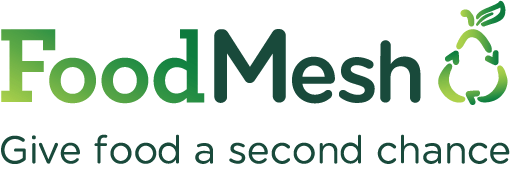28 Aug Spotlight on: North Okanagan Valley Gleaners
In support of the North Okanagan Food Recovery Network, this spotlight shines a light on local businesses that are finding innovative ways to upcycle surplus food from the Okanagan – turning food that would have previously been discarded into a whole new product, and creating new value in the process.
What is North Okanagan Gleaners’ mission?
“Serving God by serving the Poor”
What is your process for upcycling surplus food?
We take unwanted vegetables, clean them, dice them, dry them, and turn them into a dried vegetable soup mix for humanitarian aid and Christian missions.
Where are you sourcing the ingredients you are upcycling?
Roughly 14% of what we get is local to the Vernon area, the rest comes from all over BC, even Washington state, and Alberta.

What inspired the founding of North Okanagan Gleaners?
The concept of the Gleaners comes from the Bible – God’s way of providing food for the poor. We have taken this concept from Scripture and applied it to unwanted or unused produce.
“When you reap the harvest of your land, do not reap to the very edges of your field or gather the gleanings of your harvest. 10 Do not go over your vineyard a second time or pick up the grapes that have fallen. Leave them for the poor and the foreigner. I am the Lord your God.”
– Leviticus 19:9-10
What are some of the benefits of your products?
Our dried soup mix is given away for free to those who need it, and it’s a healthy meal.
How much food have you rescued to date?
In the last three years, we have received/rescued 3,730,000 lbs of produce.

What can you share about the environmental, social and/or economic impact of your work to date?
We are keeping good usable food out of the landfill, feeding hungry people, and creating a great social atmosphere in volunteering. Overall, I think we’re doing a good work for people, and the environment. Our senior volunteers sure appreciate something to do that helps people and shares the love of God.
What has your experience working with rescued food been like?
There is quite a bit of food available because each farmer, cold storage facility, and supplier has to deal with waste. It’s a reality of the food industry. If more people were aware that organizations would use this waste to help feed hungry people – donating it is a no-brainer.

What do you think makes North Okanagan Gleaners unique?
We are unique because we have taken a very old concept and brought it into modern times and it works. We are on target to send 15 million meals this year from unwanted produce and volunteer labor – that’s a good story.
What would you consider North Okanagan Valley Gleaners’ biggest success to date?
Our biggest success comes from our amazing volunteers! They have captured the vision to serve one another and has resulted in feeding millions of people. We could not do the work we do without our volunteers – they are our greatest asset.
What are some of the biggest challenges North Okanagan Valley Gleaners has faced?
Covid was a big challenge for us. Relying on seniors to volunteer during the pandemic was a challenge for sure. Finding the right contacts was a challenge at first, we have a really good procurement team that helps us find produce and we know a lot of people which definitely helps!
Where can someone looking to buy your product find them?
We don’t sell our product. It’s all given away worldwide to help feed people. Applications for receiving our product can be found on our website.

What has been the public response to your products?
We’ve had some good reviews and some negative reviews. Most of the negative reviews are from people who really don’t understand what we’re doing. One of the common misconceptions about us is that we are sending all of our food overseas and not helping people locally. This is not true. We send all of our dried products overseas because that is what we are licensed for – however, we do send fresh produce to our local food banks/charities.
Have you noticed a change in attitude towards upcycled food since North Okanagan Gleaners first started?
Yes. As people begin to understand the concept of what we’re doing they are more open to volunteering/donating. We have had some incredible donors come on in recent years and we are never lacking in produce to work on.
What advice would you share with someone looking to start their own food upcycling venture?
The cost of starting up is incredibly expensive. Fortunately, we have a Gleaners Store which sells used furniture and appliances which helps fund our food processing operations. You will have to have some friends with deep pockets to help secure a building, not to mention equipment and trucking. My recommendation is to have some sort of thrift store to help secure the funds for what you are trying to accomplish.

Join the North Okanagan Food Recovery Network
Be part of a growing community of organizations that are coming together to help ensure that no food unnecessarily goes to waste.
Prepared by Megan Czerpak, Head of Communications at FoodMesh


